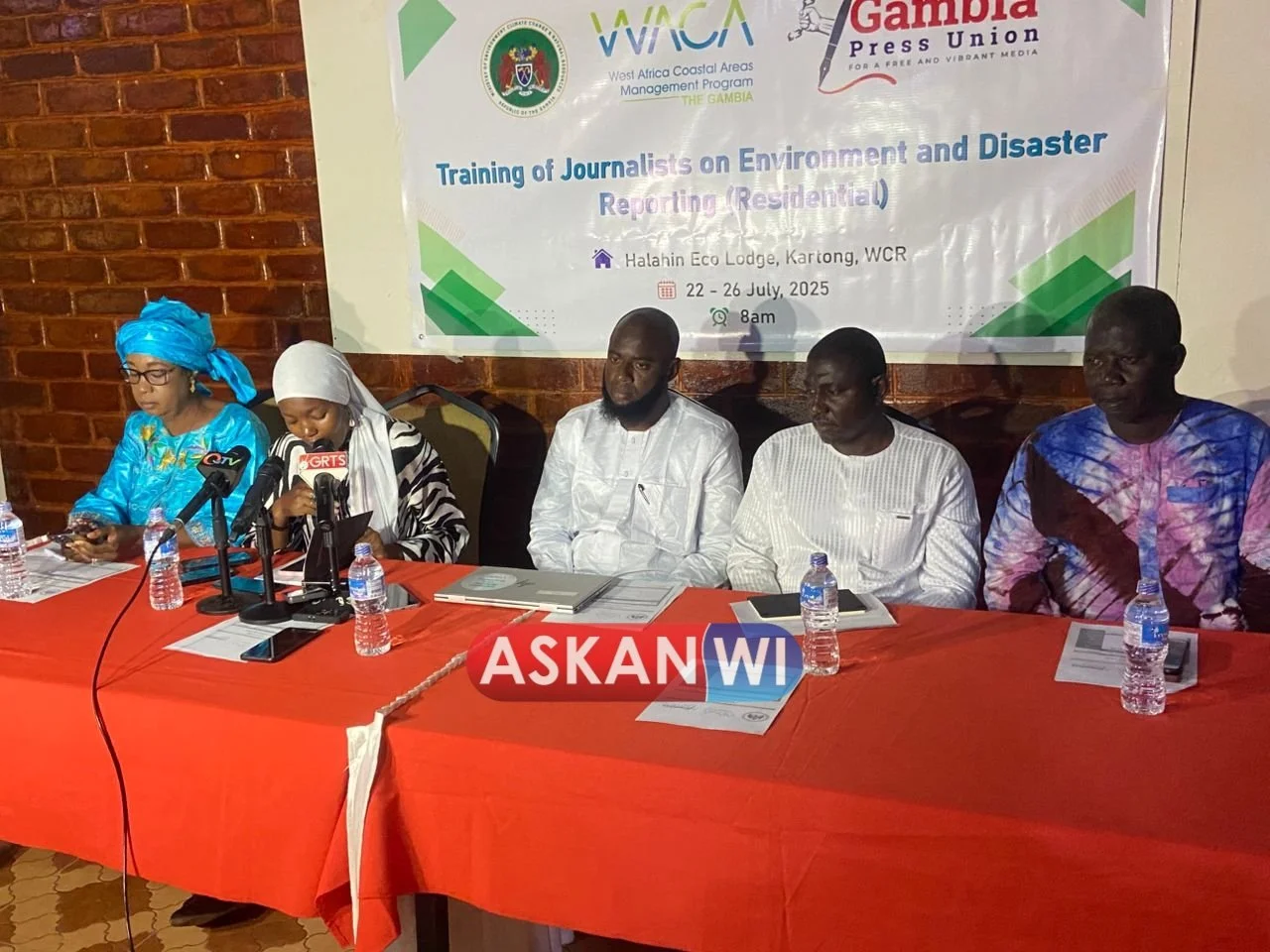Telling Stories of Resilience: Journalists Trained to Cover Climate and Disaster Issues
Group Photo © Askanwi
By Haddy Ceesay
The West Africa Coastal Areas Resilience Investment Project (WACCA), in partnership with the National Disaster Management Agency (NDMA) and the Gambia Press Union (GPU), has launched a five-day capacity-building workshop aimed at enhancing the skills of journalists in environmental and disaster reporting.
Held from 22nd to 26th July 2025 at Halahill Lodge in Kartong, Kombo South, the training brings together 25 journalists from media houses across The Gambia.
Climate Threats Demand Stronger Media Engagement
The initiative comes at a critical time, as climate change and environmental hazards continue to pose serious challenges across Africa. From rising floods to coastal erosion, communities are facing escalating threats that demand timely, accurate, and ethical journalism.
Media's Role in Strengthening Community Resilience
Speaking at the opening ceremony, Alhagie Haruna Cham, Social Development Specialist at WACCA, delivered a statement on behalf of the Project Coordinator, stressing the crucial role of the media.
“At WACCA, we recognise the indispensable role journalists play in informing, empowering, and protecting communities before, during, and after emergencies. We are also mindful of the dangers of misinformation, where even the smallest error can cost lives,” Cham said.
He announced that beyond training, WACCA would offer small grants to support outstanding stories that showcase the resilience of communities living along the Kotu Stream.
“Even in difficult times, women in tie-dye businesses in Chube Town, Dippa Kunda, and vegetable farmers along the stream continue to thrive. These are stories of courage and resilience that deserve national attention,” he added.
High Table © Askanwi
GPU President: “Go Beyond the Headlines”
Isatou Keita, President of the Gambia Press Union, emphasized the importance of the training in equipping journalists to tackle complex environmental issues with greater depth and responsibility.
“This workshop empowers you to go beyond surface-level reporting. It gives you the tools to unpack and communicate intricate environmental and disaster-related topics in a way that fosters public understanding and drives change,” Keita said.
She also highlighted the need for stronger collaboration between the media and government.
“Government initiatives can only succeed when paired with a well-informed and proactive media. This training is an opportunity to build trust, foster direct communication, and strengthen information-sharing frameworks,” she stated.
WACCA’s Vision for a Resilient Gambia
The Gambia was allocated US$45 million for its national component of the WACCA project, which runs from 2023 to 2027. Signed on 2nd February 2023 and officially launched on 31st May 2023, the project focuses on the Kotu Stream area—a stretch of 1,881 hectares running 11.2 kilometers from Nema Kunku to the Atlantic Ocean at Kotu.
Over 200,000 people reside along the stream and depend on it for their livelihoods. The project aims to support women and youth, small-scale farmers, tie-dye workers, petty traders, and informal workers. Special attention is also given to vulnerable groups, including female-headed households, the elderly, and persons with disabilities.
This five-day training represents a major step in empowering Gambian journalists to report on climate and disaster issues with accuracy, depth, and sensitivity. By telling impactful stories of resilience and hope, the media can help shape public opinion, hold institutions accountable, and drive collective action toward a more sustainable future.


